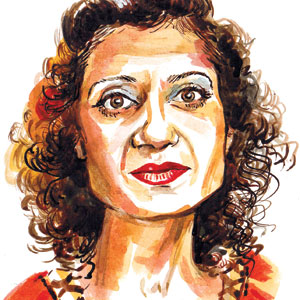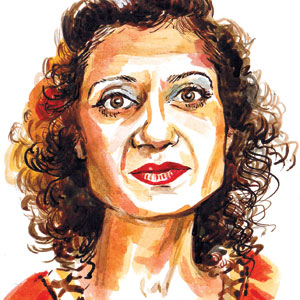Partnership is dead, long live partnerships


I am not going to bore you with yet another analysis of the new GP contract, or use phrases such as ‘bear traps’, ‘smoke and mirrors’ and ‘devil in the detail’.
What I am going to do is cathartically discharge my frustration, sadness and fear about the direction of the partnership model.
This multiprofessional vision has been the writing on the wall for some years now. Whereas previously it was born out of the grim imperative of a dwindling GP workforce, the coffin lid has now finally been nailed in place. From April onwards, and for at least five years, any increased funding will be delivered only through the network DES. A global sum pay freeze for at least five years will ensure a speedy burial, and the funeral will be attended by numerous dignitaries from the RCGP and NHS England.
All around me, I see practices scrambling for allies and trying to dodge the baggage, like kids choosing their football team in the school playground. And who can blame them? If all new funding is going to be shared with these guys, I’d want to make damn sure they’re the sort who’ll pull their weight.
So, what exactly is this workforce funding going to get me? An average network of four practices, each with a 10,000-patient population, will receive funding for just 10 hours of social prescribing time and seven hours of pharmacist time per practice per week. This equates to 0.042 minutes of repeat prescribing time per patient. Hardly a formula to get me leading a victory dance, yet this proposal (alongside future reimbursements) has been badged as the cavalry coming to save partnerships from a pauper’s grave.
I see practices scrambling for allies like kids choosing their team in the playground
The fact is, we’ve been sinking for years but no one has had the guts to bury us and start again. Instead, we now have this reincarnation of the partnership model, in the form of networks, promising to save us from excessive workloads, liability and risk.
But none of these issues will be addressed without acknowledging the fundamental flaw within our contract – we are paid through capitation and not by activity. Consultations continue to rise exponentially and patients become more complex with their comorbidities, yet we are still paid a flat rate to service the all-you-can-eat buffet. Until we are paid for the work we actually do, we will continue to be treated like community house officers to secondary and community care, regardless of the structure.
The glimmer of hope is the next generation. At a recent trainee conference in Bristol, the NHS long-term plan and GP contract were presented to delegates by the great and the good, followed by a debate about whether the partnership model had a place in the brave new world. Despite hearing both sides of the argument, trainees voted overwhelmingly to retain the model and embraced continuity of care.
Perhaps they realise that no matter how many leadership courses you go on, scholarship roles you succeed in or fellowship posts you acquire, nothing compares to the unparalleled experience of being a GP partner.
Dr Shaba Nabi is a GP trainer in Bristol. Read more of Dr Nabi’s blogs online at pulsetoday.co.uk/nabi
Pulse October survey
Take our July 2025 survey to potentially win £1.000 worth of tokens










